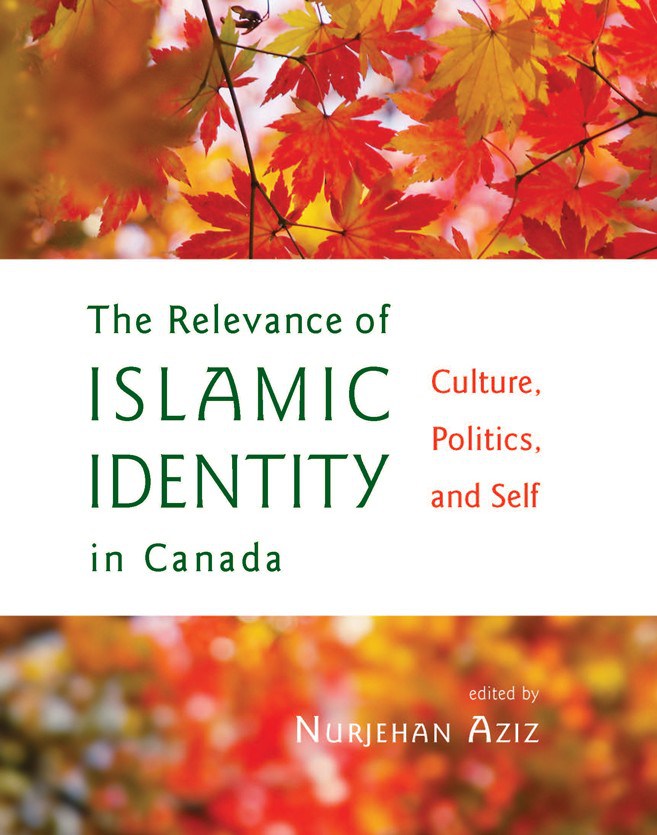Like this article? rabble is reader-supported journalism. Chip in to keep stories like these coming.
Given mainstream media’s talent for waxing hysterical about Muslims without actually talking to any, anthologies like The Relevance of Islamic Identity in Canada: Culture, Politics, and Self edited by Nurjehan Aziz are both timely and necessary, especially in a post-9/11 world.
The collection features prominent members of the cultural and intellectual community and their accounts and analyses of what it means to be Muslim in Canada.
The 11 essays in this book deal with a range of issues like the complexity and multiplicity of Canadian Muslims’ identities; the pervasiveness of Islamophobia, including at the highest levels of Canadian politics, and Muslim responses; critiques of seemingly-neutral concepts, like secularism and multiculturalism, that are often used to understand or problematize the place of Islam and Muslims in Canada; and Muslims’ efforts to re-interpret sacred texts and traditions for contemporary Canadian life.
The terrain of Islamophobia in Canada, particularly during the Harper decade, is canvassed in contributions by recently retired editor emeritus at The Toronto Star Haroon Siddiqui and Ihsaan Gardee and Amira Elghawaby of the National Council of Canadian Muslims.
Some highlights of this ugly territory: the long-simmering panic about the niqab, climaxing in federal attempts to ban the face-veil at citizenship ceremonies; the obsession with “barbaric (Muslim) cultural practices” such as forced marriage, polygamy, and “honour killing,” which constitute a small percentage of violence against women in Canada, but apparently required special legislation and a dedicated tip-line to address; the passage of increasingly draconian anti-terrorism laws, justified by reference to the threat posed by “Islamic terrorism,” “Islamic extremism,” or some variant thereof; and the vilification and abandonment of Omar Khadr, the child soldier imprisoned, tortured, and prosecuted in Guantanamo Bay.
The “war on terror,” and the Islamophobia used to propel it, have profoundly shaped Muslim identity in Canada. Editor Nurjehan Aziz remarks on the ubiquitous concern about Islamophobia throughout the volume: “one observation was almost universal: recently in Canada Muslims have found themselves the objects of vilification and discrimination. Being a Muslim then means being a victim.”
However, it is clear from several of the anthology’s essays that being a Muslim means much more than passively “being a victim” of anti-Muslim racism, for Muslim communities continuously resist and challenge the discourses used to securitize, marginalize, and demonize.
Zainub Verjee cites Mississauga’s annual Muslim Festival — a showcase of the city’s diverse Muslim population — to illustrate Muslims’ contestation of Islamophobic narratives. “The performance of Muslims at the Festival uses Celebration Square (a public space or commons) in a subversive way to create a dissenting narrative and takes a central role to counter the Western discourses such as that of securitized identities and niqab issues,” argues Verjee.
Insisting on the diversity and multi-dimensionality of Muslim Canadians’ identities is also a form of resistance: resistance to popular frames attempting to confine Muslims to some “essential” and monolithic Muslim Other (which is almost-inevitably violent, fundamentalist, backwards, and patriarchal — qualities antithetical to supposed “Canadian values”).
As novelist Ameen Merchant writes, “My sense of my Muslim identity [ . . . .] is multifarious, absorbent, and always subject to change. [ . . . ] I am a Muslim. But I am also not just a Muslim.”
Human rights advocate’s Monia Mazigh’s piece is a compelling example of how Muslim women challenge patriarchal interpretations of Islam, subverting (yet again!) the stereotype of the oppressed and voiceless Muslim woman.
Dr. Mazigh’s own campaign to free her husband Maher Arar, who was detained and tortured in Syria for over a year, demonstrates that Canadian Muslim women’s struggles for justice are waged on several fronts: against the abuses of patriarchy and the abuses of national security, against our subjugation as women and our subjugation as Muslims.
There are, however, some salient issues left unaddressed by The Relevance of Islamic Identity in Canada.
Most significantly, the anthology does not include any contributions from several communities that are persistently marginalized in accounts of North American Muslim life, including Black Muslims, Southeast Asian Muslims, and Indigenous Muslims. This reinforces the conflation of Islam with South Asian and Arab identity, and prevents analysis of the multiple systems of racism that inflect Muslim histories and experiences in Canada.
Hopefully, future volumes will expand on the scope of this one, sharpening our critical picture of what it means to be Muslim and what it means to be Canadian.
Azeezah Kanji is a graduate of University of Toronto’s Faculty of Law and the School of Oriental and African Studies, where she completed a Masters of Law specializing in Islamic Law.



